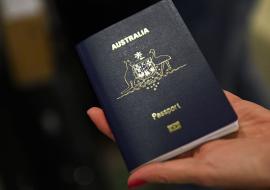European Hotels Take On Booking.com

A growing coalition of hotels across Europe is launching a class action lawsuit against Booking.com, claiming the platform imposed excessive commission fees through allegedly abusive contractual clauses. The legal action, filed in the Netherlands where Booking.com is headquartered, is spearheaded by the Stichting Hotel Claim Alliance and backed by a pan-European team of lawyers and economists specializing in competition damages.
The case builds on a pivotal European Court of Justice (ECJ) ruling from September 2024, following a dispute brought by 63 German hotels, including major brands such as 25hours, Dorint, and Steigenberger, over rate parity clauses. These clauses prevented hotels from offering lower prices on their own websites or through rival platforms.
While Booking.com revised its policy in 2015, it continued to enforce a form of “narrow parity,” which has also been challenged by competition authorities, particularly in Germany. This new lawsuit aims to bring those practices to a halt and seek financial redress for hotels that may have lost millions in unfair commissions.
The effort has the backing of HOTREC, the European hotel industry’s umbrella organization. Its president, Alexandros Vassilikos, said the legal push sends a strong message after years of “unfair conditions” imposed on hoteliers by dominant online platforms. Booking.com, however, dismissed the accusations as "incorrect and misleading," insisting that the ECJ’s decision “does not open the door to damages claims.”
According to attorney Volker Soyez, the case already includes around 2,000 hotels with claims totaling €750 million, not including interest. The number could grow substantially if more hotels from the EU, EEA, UK, and Switzerland join before the July 31, 2025 deadline. Participants are required to submit company documentation and details of commissions paid to Booking.com.
Still, not everyone in the industry is convinced. Pedro Colaço, CEO of GuestCentric, warned that the lawsuit could become more of a distraction than a solution, urging hotels to focus on direct booking strategies and emerging technologies. Max Starkov, a hotel tech strategist, was even more blunt: “Hoteliers knew the costs of working with OTAs from day one. Instead of investing in their own channels, they took the easy route — and now they’re complaining about the price.”
Regardless of the outcome, the case highlights Booking.com's dominant 70% market share in Europe and renews scrutiny over OTA practices. As legal and regulatory pressure mounts, the lawsuit could mark a turning point in hotel distribution, reigniting calls for greater balance and control in the digital travel marketplace.














